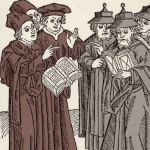September 2, 1796: A Symbolic Emancipation for the Jews of Holland
On a day etched in history, September 2, 1796, the Jews of Holland were granted emancipation. Though this act did not bring any tangible change to their rights, it was a symbolic gesture during a tumultuous era in the Netherlands.
The Decline of the Netherlands
By the mid-1700s, the Netherlands, once a dominant trade and shipping hub, began to falter. France and England emerged as formidable competitors, plunging the Dutch nation into economic turmoil. The aftermath of the Anglo-Dutch War (1780-1784) saw French forces occupying the Netherlands, and trade came to a halt.
The Impact on the Jewish Community
The cessation of trade greatly impacted the Jews of Holland, a diverse population comprising both Ashkenazi and Sephardic Jews. The Sephardic Jews, historically more affluent in the region, along with their Ashkenazi brethren, found themselves increasingly reliant on charity.
The Batavian Republic and Symbolic Emancipation
In the grip of these challenges, the Batavian Republic (France’s puppet government in the Netherlands) issued symbolic rights to the Jews. However, this proclamation sparked controversy within the Jewish community. The promise of emancipation threatened to dissolve the Kehila, the self-governing Jewish organization in the Netherlands, causing a rift between those who were pro-emancipation and those who opposed it.
The Continued Struggles in the Early 1800s
As Napoleon’s wars raged in the early 1800s, conditions in the Netherlands worsened. The reality of the situation starkly highlighted the fact that the symbolic emancipation brought no real benefits to the Jewish community.
Resources:
Emancipation of 1796 – Joods Monument
Portuguese Synagogue – JCK
Written by: @mayogrammo












